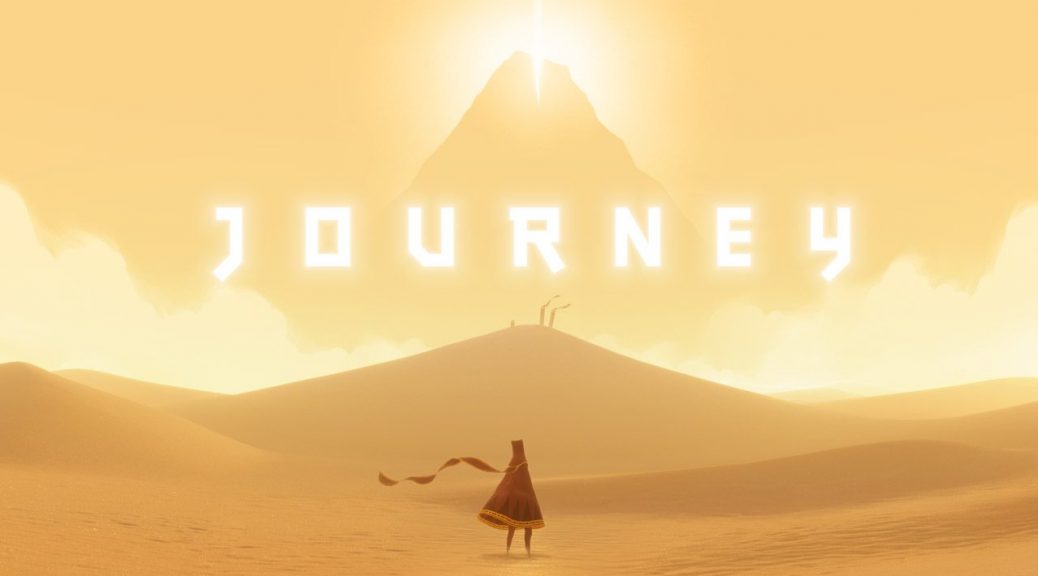
Journey
The subjectivity of art can lead to weird situations sometimes. For example, I, the one person who didn’t like Flower very much, find its spiritual successor with similar themes, Journey, to be pretty great. Much of this opinion is built on the perception of thatgamecompany learning from their mistakes. Instead of trying to push the definition of a game at the expense of all else, Journey is lighter on experimentation but heavy on refinement. The scenery is some of the most breathtaking ever put into pixels, complemented by stunning use of lighting and architecture to guide and inform the player, while the audio design is masterfully expressive. The controls improve on Flower’s while maintaining the immersive feeling of weightlessness. Some sections drag on longer than necessary, while others feel like missed opportunities for traditional gameplay, but a pervasive sense of discovery always dominates the experience.
My primary issue with the game turns out to be its main innovation of anonymous co-op. Partly because the odds of finding another player in your section of a two-hour campaign are miniscule, but mostly because it doesn’t really work with the existing narrative. Journey’s story is built in layers, individually simplistic, but collectively forming a thought-provoking and interpretable whole. A second protagonist can be squeezed into certain perspectives but not into others, creating a disconnect that’s hard to shake. The multiplayer is its own well of emergent narrative, but it would have been better as a standalone game that wouldn’t have to share the spotlight with an existing script.